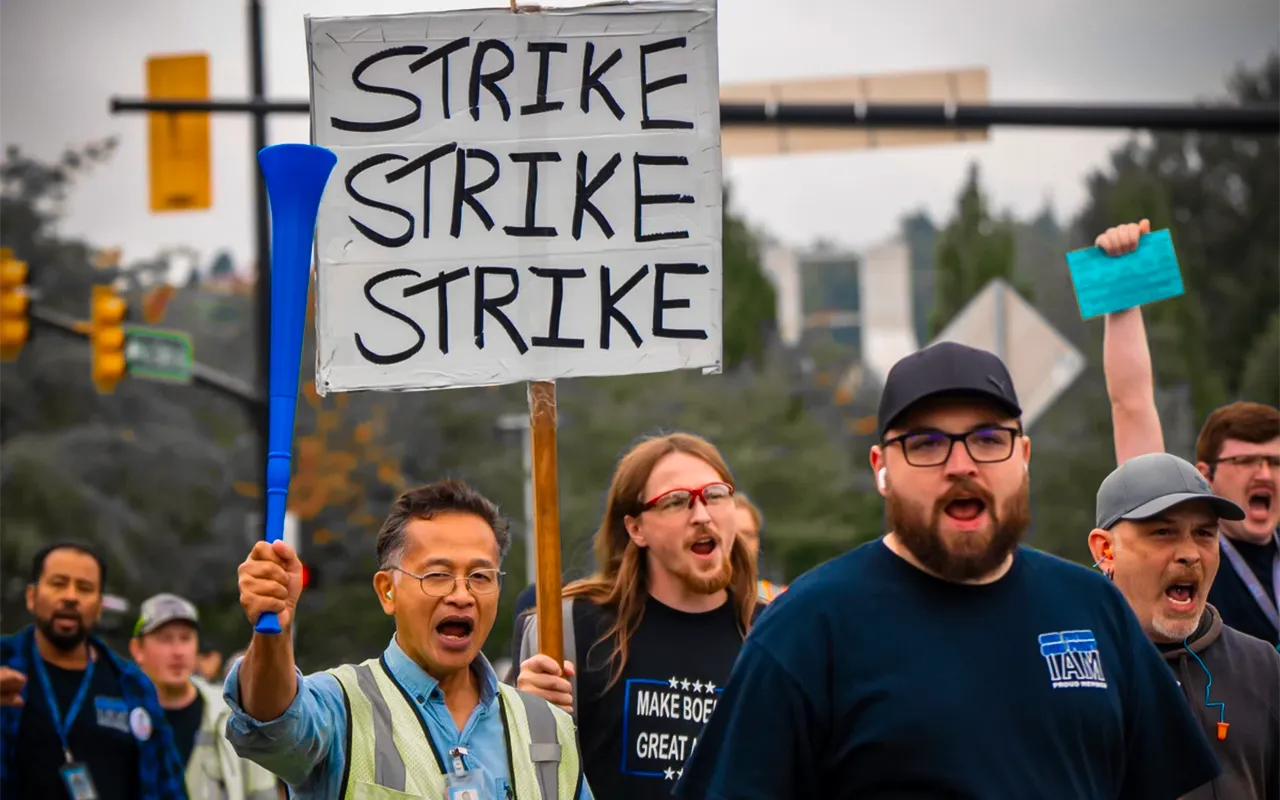Launched on September 13, 2024, the strike marks a pivotal point in the history of the massive aerospace firm and the machinists. Voting strongly against Boeing’s offer in the contract were over 33,000 machinists who are members of the International Association of Machinists and Aerospace Workers. Workers have walked off the job and shut down Boeing’s factories in Oregon and Washington, with nearly 95% of voters rejecting the deal.
The issues that have led to the dispute are wages, retirement benefits, job security, and health care costs. Boeing’s proposed contract provided a 25 percent increase over four years, but slashing healthcare costs and proffering a $3000 lump sum was too little to keep up with the rising living costs in the Pacific Northwest, according to the thinking of many workers. They said the offer did not go far enough to address inflation and didn’t make up for years of stagnant wages. Boeing workers, particularly in areas like Seattle, have watched home prices skyrocket, and many felt the company wasn’t doing its part to compensate for these economic challenges.
Workers were also unhappy about changes in annual bonus formula calculations and a lack of traditional pension benefits—Boeing got rid of those for new workers about 10 years ago. The union was pushing for a 40 percent wage increase over three years and for a return to pensions but settled for increased contributions to 401(k) retirement plans. Despite these concessions, union leadership and Boeing management remain in disagreement, as the workers on the picket lines said they are ready to go on strike for as long as it takes to get a better deal.
The strike will ripple into Boeing in their production and financial stability. The strike has not affected airline operations so far, but the halting of its top-selling jet, the 737 MAX, along with other models, might result in serious longer-term impacts. Boeing is already struggling to cope with billions in financial losses arising out of delays and safety concerns in the past related to the 737 MAX. The company’s stock has declined almost 40% this year.
Overall, throughout the years, Boeing’s relationships with its employees have been quite tense. The company’s choice to move the production of the 787 Dreamliner to South Carolina, a state with weak labor unions, has left many workers still feeling resentful. That action was perceived as a cost-cutting strategy and was considered disrespectful to Washington’s unionized labor force. What’s more, frustration has mounted in recent years among workers as top executives have gotten significant pay rises while worker wages stay the same.
This strike is the latest salvo in a generations-long history of labor struggles between Boeing and its machinists. Boeing has repeatedly sought to gain an upper hand by threatening to move operations. However, machinists are pretty resilient, and according to most of the workers, they prepared for this day for years by saving money and having other part-time jobs while on strike. The union is determined to hold on until Boeing agrees to their contract demand.
On the other hand, Boeing is already under great pressure to bring an end to the strike as fast as possible. The company has already borne the brunt of regulatory scrutiny, production challenges, and financial instability. Boeing threatens to miss additional production objectives and chances to bounce back from recent failures the longer this strike lasts. It is anticipated that negotiations between Boeing and the union, mediated by the Federal Mediation and Conciliation Service, will shortly start. However, it is unknown how long it would take for both parties to reach a settlement.
For now, picket lines are indeed going up outside Boeing factories filled with workers holding signs and chanting slogans. Most of them have vowed, saying they will strike “as long as it takes” to get a decent deal. This strike may have ramifications not only for Boeing but throughout the industry regarding labor relations. The fight of the machinists for better pay and benefits is part of a larger trend of labor activism that is sweeping across the United States, where workers in various industries are pushing back against corporate practices they consider unfair.



